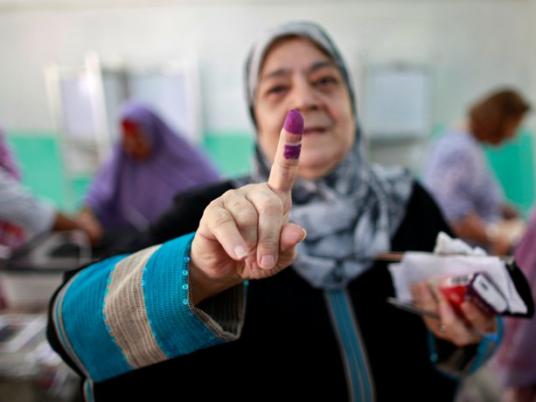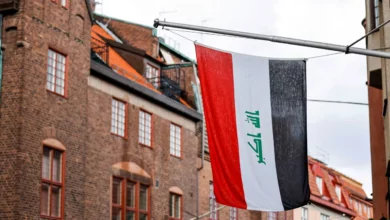Fribourg, Switzerland– The controversial 29 November referendum on whether to allow the building of mosque minarets in Switzerland witnessed high voter turnout, with 53 percent of Swiss voters taking part in the referendum. The ban on minarets went through with a 57.3 percent majority, a decision that has shocked Swiss society. Only four cantanos voted against the ban: Basel City (German-speaking), and Geneva, Vaud and Neuchâtel (French-speaking). In rural areas up to two-thirds voted for the ban, according to the Federal Statistics office.
The consequences have been overwhelming for a small country that has faced a tough year dealing with issues ranging from criticism of its taxation system and banking secrecy laws to a crisis with Libya where two Swiss businessmen are being held hostage.
For months the debate over the initiative to ban minarets has focused on the potential threat of the Islamization of Switzerland: burqas, forced marriages, even female genital mutilation. According to a 30 November article in Zurich’s Neue Zürcher Zeitung, the ban symbolizes nothing less than a "clash of cultures." Across the country, newspapers and editorials attribute this vote to the fear factor. They also blame the government for agreeing to put this initiative to referendum as well as the lack of presence of political parties.
According to Le Temps, “Swiss Muslims do not deserve the injustice of this vote which was motivated by fear, fantasies and ignorance.” The Journal du Jura stressed that those who accept this initiative were pushed to this conclusion out of terror, and “the misconception [that does not differentiate between] well-integrated Muslims and religious extremists.” This fear is based on “cliché images of fanatic and fundamentalist Muslims,” according to L’express et L’Impartial of Neuchatel.
Several newspapers also cite Libya as the motive behind this vote. The Corriere del Ticino mentions, "With his call to eliminate Switzerland from the world map, and the humiliation the Swiss felt as a result of keeping two of our citizens as hostages; certainly this was a vote against the arrogance of a Muslim dictator like Gaddafi."
The Tribune de Geneve, argues that the vote was related to fear of Islam. It also stresses the role of the Libyan crisis saying, “many, traumatized by the Libyan crisis, meant the vote as a sign of protest and mistrust rather than hate.”
The Balser Zeitung, among others, makes the point that the vote was not about the construction of minarets. “A vote against Islam” read the headline in L’express of Neuchatel the day after the vote. It declared the vote as “the most xenophobic action in several decades.” It also highlighted that many voters cannot differentiate between well-integrated Swiss Muslims and an image of “Muslim extremists trying to impose sharia law.” Le Matin of Lausanne wrote that the result as a clear account of what many people think of when they think about Islam: “Extremists with beards, women in burqas, and imams calling for a holy war.”
The government and political parties have also received their share of the blame. “We haven’t heard them talk,” said La Liberté. According to 24heures, the government has been “very shy” in discussing this initiative and should have countered it from the beginning. According to The Tribune de Geneve, the government has left “the battle field wide open to the adversaries” and political parties have been absent during the campaign, not taking the initiative seriously.
The Blick newspaper of Zurich asks whether a debate about Islam will follow after this “big slap in the face” to the government and political parties. It summarizes the referendum as “clear vote, unclear consequences.”
Many fear the economic consequences of minaret band in terms of trade with Muslim countries. The fear of boycotts of Swiss exports in Muslim countries, which represent seven percent of total exports. Many politicians evoked the Danish cartoon incident as a sign of potential consequences.
Others are weary of the image of Switzerland. “The ban on minarets adds to a long and embarrassing list of economic and political issues which puts our country in a weak position on the international scene,” writes 24heures. "Our diplomats will have their work cut out," writes Zurich’s Neue Zürcher Zeitung.
“At a time where there are so many challenges ranging from the economic crisis, the disappearance of banking secrecy and the diplomatic crisis with Libya, let’s hope that the price to pay will not be exorbitant,” concludes The Fribourg newspaper La Liberté
Le Temps mentions that “efforts to repair this damage have already started,” with the government sending messages to the Muslim world that freedom of religion is still respected and that the vote was not "a referendum against Islam … but a vote directed against fundamentalist developments," as Swiss Justice Minister Eveline Widmer-Schlumpf told her European counterparts on Monday.
Protests took place in the Swiss-French areas of Geneva and Lausanne yesterday, uniting approximately 7000 people. In Lausanne, they marched from the cathedral to the mosque, holding banners that said “No to the exclusion,” “No to discrimination,” and “We are all Muslims.” The march was organized by the Movement Against Racism (Mouvement de lutte contre le racisme), and was sustained by members of the Jewish, Protestant, Catholic and Muslim communities, as well as some political parties. It remains to be seen what will be the true fallout from the minaret ban.




